This Week In Black History April 12-18, 2023
Richard Allen
1787—Famous Black clergymen Richard Allen and Absalom Jordan organized the Free Africa Society which is believed to be the first Black self-help organization or mutual aid society in America. The two, especially Allen, attempted to better life for Blacks through the organization of separate Black controlled institutions. Allen is also the founder of the African Methodist Episcopal Church.
1861—The Confederates attack Fort Sumter in the Charleston, S.C., harbor setting off the Civil War. Thinking the recent election of Abraham Lincoln would lead to the ending of slavery, the Southerners struck first in a bid to form a separate, White-controlled, slave-owning nation.
1940—Contemporary jazz composer and musician Herbie Hancock is born in Chicago, Ill.
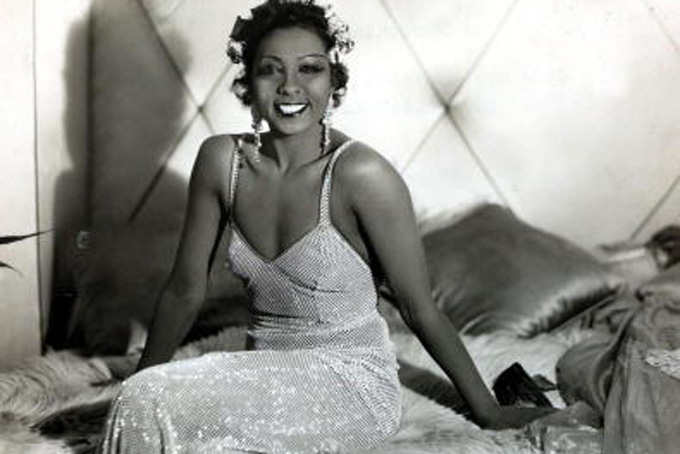
1975—Josephine Baker dies. She was born Freda Josephine McDonald in St. Louis, Mo., in 1906. Baker left the United States for France in 1925 seeking a career as a dancer. She achieved fame throughout Europe, becoming a versatile and sensational performer with her often revealing dances. During World War II she even aided the French resistance in its battle against occupation by the forces of Nazi Germany.
1873—The Colfax Massacre takes place in Grant Parish, La. Still smarting from the loss of the Civil War and enraged by the political powers being given Blacks during Reconstruction, a White paramilitary terrorist group known as the White League set out to restore White rule in Louisiana. The spark was a disputed election and a confrontation near the Colfax courthouse between a 60-member sparsely armed Black militia and nearly 300 heavily armed members of the White League. The Blacks took refuge in the courthouse and a gun battle rages for hours leaving three Whites dead. Then the Whites convinced an elderly Black man to sneak into the courthouse and set it afire. As the Blacks escaped the flames, they were either shot or arrested. But even those arrested were later killed. Before the day was over, somewhere between 60 and 100 Blacks were massacred.
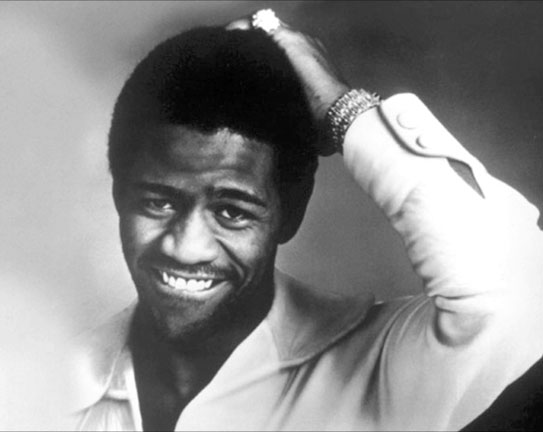
1946—R&B great Al Green is born in Forest City, Ark. Many considered Green the greatest male R&B singer of the 1970s. Among his greatest hits were “Tired of Being Alone,” “I’m Still in Love with You” and “Let’s Stay Together.”
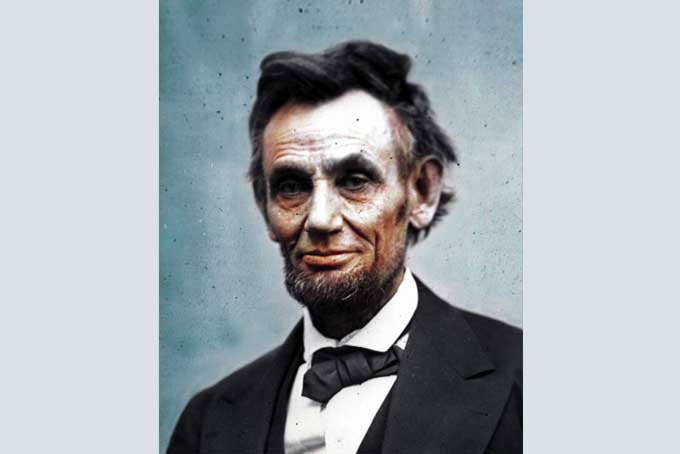
1865—President Abraham Lincoln is shot and critically wounded at Ford’s Theatre in Washington, D.C., by John Wilkes Booth. Lincoln would linger for several hours, but died at 7:22 a.m. the following day, April 15. A debate still rages among historians as to how broad based the conspiracy was to assassinate Lincoln. Regardless, it is clear that Booth was a racist who supported slavery and the South during the Civil War. Originally, he was part of a plot to kidnap Lincoln and hold him in exchange for captured Confederate soldiers. But on April 9, 1865, Confederate troops under Robert E. Lee surrendered to Gen. Ulysses S. Grant at Appomattox. Later that day, Lincoln gave a speech suggesting that the ex-slaves be given the right to vote. The speech infuriated Booth and thus the plot to kidnap Lincoln was converted into a plot to assassinate him. Booth escaped capture for 12 days. But on April 26, 1865 he was cornered by federal forces and shot and killed during a gun battle. Four of his fellow conspirators, including one woman, were tried and hanged. The assassination of Lincoln changed the course of history for Blacks. While Lincoln was not as great a supporter of Black rights as he has often been portrayed, he was a much greater supporter than the man who replaced him in office—Vice President Andrew Johnson. Johnson actually sympathized with the Southern slave-owning aristocracy and opposed most civil and virtually all voting rights for Blacks. The pro-Black legislation of the Reconstruction period was normally passed over his objection or veto. Nevertheless, Johnson is one of the primary reasons the Reconstruction period only lasted 12 years. He helped lay the foundation for the Jim Crow period beginning around 1880 during which time Black political and civil rights were systematically taken away. This probably would not have happened if Lincoln had not been assassinated.
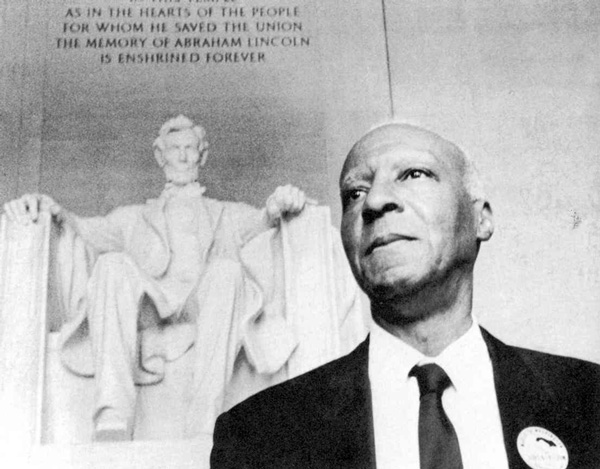
1899—Asa Phillip Randolph, organizer of the Brotherhood of Sleeping Car Porters, was born in Crescent City, Fla. Randolph brought the power of unionism to Black America. He also used his position as the nation’s No. 1 Black union leader to become one of the major civil rights leaders of his era. More than anyone else, it was Randolph who organized the historic March on Washington during which Martin Luther King Jr. delivered his famous “I Have A Dream” speech. Ironically, as a young man Randolph left Florida and moved to New York to become an actor. Instead, he became involved with the Socialist Party and helped develop a magazine known as The Messenger. The editorial slant of the magazine describes Randolph as “midway between the cautious elitism of the NAACP and the utopian populism of Marcus Garvey.” Randolph died May 16, 1979.
1922—Harold Washington, the first Black and 42nd mayor of Chicago, is born in Chicago.
1862—President Abraham Lincoln signs a bill ending slavery in Washington, D.C. Approximately nine months later he would issue the Emancipation Proclamation which had a highly emotional and symbolic impact but actually freed very few slaves when it was first pronounced. The Proclamation targeted slaves in the South. But at the time, Lincoln had virtually no control over the rebellious slave-owning Southern states.
1929—The now little known, but one of the grandest voices in African-American history is born on this day in Leesburg, Ga.—Roy Hamilton. Hamilton’s baritone voice made him a hit during the 1950s. His most memorable songs were “Unchained Melody” and “You’ll Never Walk Alone.”

1947—Basketball great Kareem Abdul-Jabbar is born Lewis Alcindor in New York City. His more than seven-foot frame would make him a dominant player in professional basketball.
2010—The National Center for Health Statistics releases a report showing that a whopping 72.3 percent of Black babies are born to unmarried women. The same report revealed that Hispanic women had the highest birthrate in the nation (98.6 births per 1,000 women) followed by Asian American women (71.4); Black women (71.2) and White women (59.6).
1872—Activist and fiery journalist William Monroe Trotter is born on this day in Boston, Mass. A close friend of W.E.B. Du Bois, Trotter was one of the most militant Black leaders of the late 1800s and early 1900s. He helped found the Niagara Movement, which led to the establishment of the NAACP but then refused to join, claiming the group was too moderate and elitist. He was also a leading opponent of the accommodating policies of Booker T. Washington. Trotter’s primary vehicle of expression was his newspaper—the Boston Guardian.
1818—Military leader Andrew Jackson (later president) leads the defeat of a force of Indians and Blacks at the Battle of Suwanee, bringing an end to the First Seminole War. The Seminoles had been the target of a government military campaign because they possessed lands, which Whites in Florida greatly desired, and because they had provided safe haven for escaped slaves. Indeed, Blacks such as John Horse would become major Seminole leaders. It would take at least two more major military campaigns before the Seminoles and their Black allies lost possession of those lands.
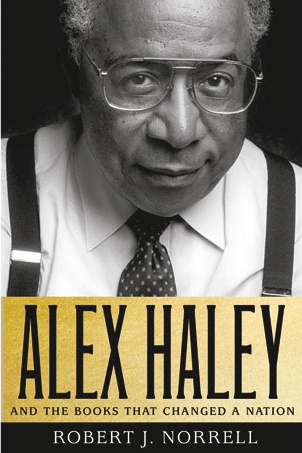
1977—Alex Haley, author of “Roots,” is awarded the Pulitzer Prize.

